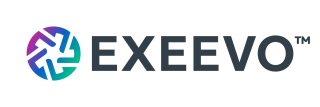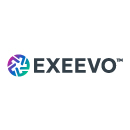Omnichannel customer-centric teams and the future of pharma CRM

If pharma companies are to live up to their decades-old patient-centric promises then marketing budgets need to move from brands and franchises to omnichannel customer-centric teams, according to one digital transformation leader.
The industry is making some progress with this, but it’s not enough, says Edwin Erckens, who was until recently chief information officer within Sanofi’s general medicines global business unit.
“Pharma companies really need to become patient, but also healthcare professional, centric. Companies have talked about being patient-centric for decades, but I don't think many really are. Even being healthcare professional-centric, when it comes to customer engagement, still has a long way to go.
“It's not so much a technical issue, it's more the way budgets are organised. Typically, the marketing budgets are still in the brands and the franchises and not in omnichannel customer-centric teams as they should be.”
Edwin says that whichever pharma company can get itself organised around real customer-centricity “will have a huge advantage”, although he notes that will be difficult to achieve.
Drawing on his time with pharma companies like Sanofi, Teva and Procter & Gamble, as well as the consumer goods experience he gained during a spell at Heineken, he sees some recent signs of movement, despite the need for more structural change.
“Now there’s another period of acceleration, because everybody realises it's not about ‘CRM’ or ‘salesforce automation’ anymore, it's really going to omnichannel marketing and customer engagement.”
“In the recent past, the pharma industry’s move to SaaS solutions really accelerated change and made many things possible, including taking best practices from other industries and really accelerating, globalising and bringing in more - and faster - innovation to bring costs down.
“Now there’s another period of acceleration, because everybody realises it's not about ‘CRM’ or ‘salesforce automation’ anymore, it's really going to omnichannel marketing and customer engagement.”
In a career that has seen him lead a number of large global pharma CRM implementation programmes, he shares some of the key lessons he’s learnt along the way.
“The difficulty is always, do you do local, global or regional? One of the key lessons that I will also advise people on is trying to avoid any regional solutions and the unnecessary complexity that brings to the process. And then you have to have global implementation over local implementations - you have to have a global platform, global services and global data, most importantly.”
About the interviewee
 Edwin has created his opinions based on 10 years of experience in pharma and consumer healthcare in P&G, Teva and Sanofi, in local, regional, and global commercial IT/digital roles and chose Omnipresence by Exeevo for use in multiple markets during his time at Sanofi. He is a digital transformation leader with experience across different companies and industries. He started his career at P&G, then moved to Heineken, followed by regional and global executive IT/digital roles at Teva and Sanofi. He holds an MSc in Mechanical Engineering and has worked and lived in seven countries. He currently resides in his home country, the Netherlands.
Edwin has created his opinions based on 10 years of experience in pharma and consumer healthcare in P&G, Teva and Sanofi, in local, regional, and global commercial IT/digital roles and chose Omnipresence by Exeevo for use in multiple markets during his time at Sanofi. He is a digital transformation leader with experience across different companies and industries. He started his career at P&G, then moved to Heineken, followed by regional and global executive IT/digital roles at Teva and Sanofi. He holds an MSc in Mechanical Engineering and has worked and lived in seven countries. He currently resides in his home country, the Netherlands.
About Exeevo

Exeevo is a unified, intelligent and agile digital ecosystem for life sciences organisations to revolutionise health experiences for healthcare teams and patients in their journey towards sustainable health outcomes. Built with Microsoft clouds including Dynamics 365, Azure and Teams well as Cloud for Healthcare, Exeevo platforms are verticalised for customer and patient experiences, delivered by biopharma, medical devices, biotech and consumer health organisations.











